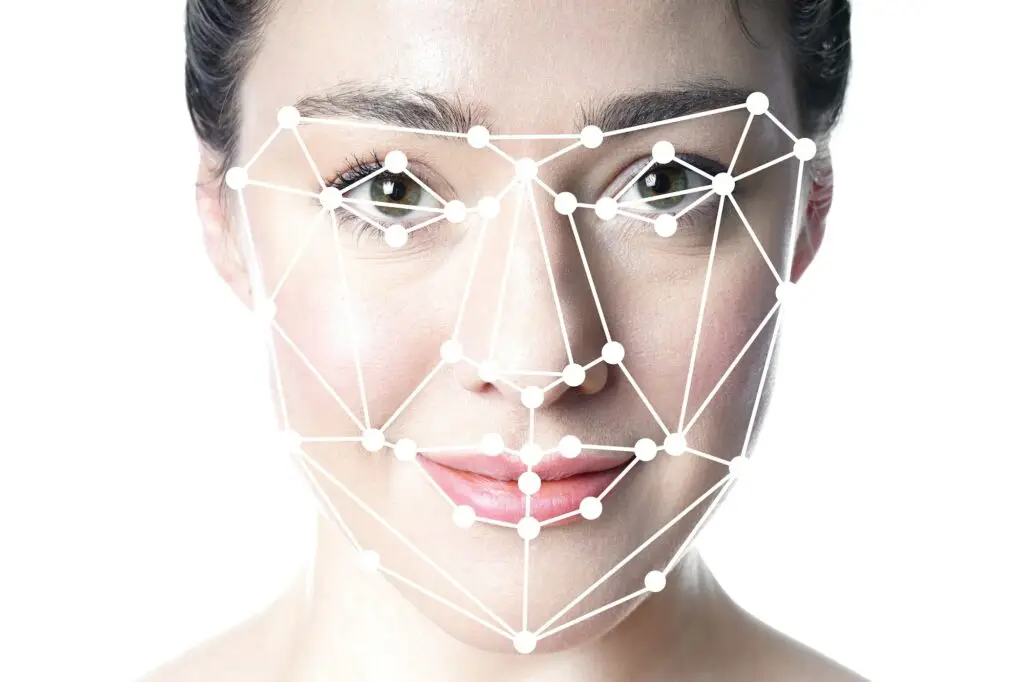As Artificial Intelligence (AI) technology advances at a pace so fast it is nearly impossible to keep up, concerns about privacy invasion follow the exponential line of concern.
From data collection to facial recognition, AI is being used every second of the day all over the world to collect vast amounts of personal data and track people’s every movement. Trust me, AI is invading your privacy right this second.
While many huge corporations, which just so happen to earn obscene amounts of money off of this, will tell you there is nothing to worry about, the privacy invasion they have inflicted upon the citizens of the world cannot be ignored.
As AI continues to evolve, it is breaching our privacy rights in ways that were never taken into account when writing governing laws and regulations. So in this article, we will take a closer look at the five primary methods by which AI technology is compromising our right to privacy today.
AI is not only obnoxious to deal with (such as when have to constantly read AI-generated content), but it can also be a detriment to our psyche, health, and even democracy.

Concern #1 – AI Is Stealing Your Data
One of the most concerning effects Artificial Intelligence has on our privacy today is its well-honed ability to collect, store and analyze our data without us even being aware. Through AI algorithms, it collects our data from sources such as social media, Internet searches, and online purchases.
Initially, the motive and compilation of data may appear to be innocuous; it collects your age, gender, location, as well as other demographic-specific details that are later used for creating and delivering personalized ads to you.
This is why you’ll often see those banner ads on the side of a lot of websites (note, not ours!) with things that seem suspiciously related to you.

For example, if your wife recently said something like “Thomas, we never do anything fun anymore. The love is gone, and you’re a terrible husband. Take me to Paris so we can re-spark the romance,” and in defeat, you look up how much tickets to Paris are these days.
I can guarantee you that for at least the next week, you’ll be inundated with ads and pop-ups featuring Parisian hotels, airfares, and tours all over the internet.
Again, you might not even mind this. A lot of people don’t, and I kinda get that – if I have to see an ad, might as well be something I’m interested in, right? The actual concern arises when you look at how all the data is used. While targeted advertising is no doubt beneficial for companies, it does arise significant privacy concerns.
The data is collected either way, but how do we control who uses it? From small-town homes to members of Congress, people’s biggest concerns are around the potential this data has to be used for much more nefarious purposes, such as identity theft, surveillance, or spying from hostile nations.
Cybercriminals, however cool of a name that is, can use data collected by the same AI to steal an individual’s identity, open bank accounts and credit cards in their name, and conduct a vast array of other fraudulent activities.

The government, a much lamer name, as well as other organizations, can also take the same data and conduct surveillance on people without their knowledge or consent.
This has been a hot topic for ages now, because where do you draw the line on our civil liberties? How do we protect ourselves from the crooks on Capitol Hill abusing this power?
A recent example of has been the controversy around the bill congress tried to pass in March 2023 regarding TikTok, which would ban it from American phones in concern about Chinese meddling, which we covered more in our article “How AI Is Damaging Our Children’s Development”.
With data theft becoming increasingly common, and the sheer amount of information that AI collects online increasing our risk, normal people like us are suffering more and more from the consequences. Financial losses, reputational damage, and psychological distress can all occur as a result. We have to take steps to protect ourselves from these damaging incidents.

Although Congress is currently in the works to get through more data privacy bills and all that jazz, they have yet to start even touching the subject of Artificial Intelligence regulation. As in, it doesn’t even look like it’s on the table.
Even crazy billionaires, such as Elon Musk, who work on AI full-time have come out in the media and in several interviews voicing their concern over AI. He has been repeatedly calling for the importance of regulating this increasingly dangerous technology.
As AI technology grows at a rate we cannot even comprehend (aptly named the “Informational Big Bang”, so does the potential for privacy and invasion and harmful consequences go up for us average Joe’s. I promise you, this is more terrifying than you can imagine.
Artificial Intelligence knows absolutely everything about your online presence, and when that information is used for other things than advertising Paris plane tickets, we are going to be in deep, deep trouble.
Concern #2 – AI Can Recognize The Curvature of Your Cheekbones
Slightly related to our previous talking point, but still in an entirely separate category of its own, is facial recognition AI. The technology essentially uses AI to analyze and recognize human faces in digital images or videos and has become increasingly common in recent years (like all things AI).
This technology is widely used in security cameras, smartphones, and… honestly any piece of technology with a camera attached to it.

And, sure, it’s there for a reason. The idea is that facial recognition technology has the potential to improve security and identify criminals, but people should look at the bigger picture.
What happens when criminals have access to that same information? There is a significant and serious concern about privacy invasion at hand here and companies simply cannot keep up.
First off, there is the issue of consent. AI facial recognition essentially allows government and law enforcement agencies to track the movements and activities of individuals without their knowledge or consent, which, if you ask me, is crazy!
The Western world is supposed to be free, yet I can’t even go down to the supermarket with a camera capturing and analyzing my every facial feature. What is worse is that at no point can I opt out of this.
Our liberties are in the hands of power-hungry politicians and crooked cops (and don’t try to blue-line me, there are tons of crooked cops whether you like it or not).
Did you know that retailers often use facial recognition to analyze customers’ shopping behavior? They have cameras in the shop that use AI to identify consumer behaviors, and then use that data to make personalized product recommendations. And no, it’s not just fancy stores, it’s 30% of all US retailers.
This data, which of course benefits multi-billion dollar corporations, is a clear invasion of privacy. On the internet, we at least hit a button that accepts the cookies or privacy policies or whatever – but there is no sign on the front door of Nordstrom that says “hey, we’re tracking your every move so we know which kind of chinos you like.”

Related to concern #1, this data can then be accessed by people who have significantly more nefarious things in mind. This becomes even more worrisome when you realize that the AI isn’t perfect, and the facial recognition technology out so far is not at all infallible. It’s subject to error and bias.
Unfortunately, there are tons of cases where Artificial Intelligence is unable to accurately recognize individuals of certain races or genders, leading to false accusations and discrimination. For example, when Amazon attempted to use AI with facial recognition to hire new employees, they ended up discriminating against women and people of color.
Yeah, AI is bigoted. Who woulda thought?
Also, before you come at me with “this is just speculation” – there are already tons of examples of facial recognition technology being used inappropriately and without the individual’s consent aside from bad Amazon work interviews.

In 2020, the New York City Police Department was literally sued for using facial recognition technology without the public’s knowledge or consent. Clearview AI was also found in 2020 to have scraped billions of photos from social media sites without individuals’ consent to create a facial recognition database. Jesus Christ.
If you’re interested in reading more about the lack of emotional intelligence and empathy in AI, check out my article on AI’s Emotional Blindspot And The Risk That It Poses.
Concern #3 – AI Knows Exactly What You’re Doing Next
Predictive Analytics is a technology that essentially uses AI to create algorithms that analyze data and make predictions about future behavior.
Similar to all the other privacy concerns in this article, this too was a technology originally created to help marketers make product recommendations to customers. I sense a common theme $$$.
The AI uses predictive analytics to make assumptions about people based on their behavior patterns, interests, and social connections – which is just such a crazy invasion of privacy.

Let me hit you with a couple of examples: God damn credit scores. These scores are calculated using AI algorithms that analyze an individual’s credit history and other data to determine their “worthiness”.
As we’ve already learned, AI is biased, and this technology leads to serious discrimination against certain groups, such as low-income people and minorities, who are unfairly penalized by these algorithms.
So, what I’m saying, for the 100th time, is that AI technology is only helping the richer (bankers and lenders) get richer, and the poorer get poorer. AI is the modern-day anti-Robin Hood, and it’s a crisis that no one seems to even care about.
Predictive analytics is also part of why our very democracy is being torn down from the inside – as it is the most widespread way for AI to influence public opinion and spread disinformation (fake news).
For example, during the 2016 US presidential election, Russian hackers used predictive analytics to target certain groups with fake news stories designed to influence their votes – which I’ll cover a little bit more later in the article.
Concern #4 – AI Loves The Sound of Your Voice
Another AI technology that has a habit of blatantly invading our privacy – is voice recognition. The technology takes advantage of AI algorithms to identify individuals and track their conversations through smart speakers, virtual assistants, and any other voice-activated device that you can think of.
Is it really worth being able to turn on the music hands-free, knowing that this means companies are listening to people’s conversations without their knowledge or consent?

The biggest scandal surrounding voice AI was the 2019 Amazon Alexa voice assistant fiasco. In 2019, it was uncovered that Amazon had been using both contractors and AI-powered technology to eavesdrop on conversations picked up by Alexa devices without the awareness or approval of the users.
And trust me, just because they got caught then does not mean it is still not happening. The device you’re reading this on probably has a microphone, and it can hear everything you say.
Start talking about engagement and proposing for a little bit, and see how your ads all of a sudden are going to be jewelry-related.
If big corporations can listen in to know what to sell you, don’t think for a second that people with not-so-harmless intentions can’t either.
Dystopia is imminent.
Concern #5 – Gaslight, Gatekeep, AI.
Delving into what sounds more like a badly written episode of Doctor Who than reality, we have social engineering. This is a technique that uses psychological manipulation to trick individuals into divulging sensitive information.
Through Artificial Intelligence, social engineering has become incredibly sophisticated and can, just as an example, be used to create fake social media accounts that mimic real people.
These accounts are then used to collect personal data, spread disinformation and influence public opinion. Which not only have serious implications for our privacy but also has the potential to tear down our democracy.
One example of this is the story mentioned earlier, and how the 2016 US Presidential election was seriously harmed by Russian hackers using social engineering. They would create a mass of fake social media accounts that were then used to spread fake news stories and sow some serious discord among the American public.
To this day, Americans have turned almost completely against each other as a result – and the amount of hate and uncertainty amongst people is largely a consequence of this fake news, developed by social engineering.
Made and followed through by artificial intelligence, AI’s social engineering is literally interfering with the integrity of our elections and should raise some serious concern when it comes out about our democratic process, regardless of your country.

No, She’s Not That Into You – She Isn’t Even Real
Ever gotten a random follow from some random person on Instagram with a thousand followers, 1 or 2 photos, and no mutuals? Well, they’d be related to the concern surrounding AI identity theft and fraud.
Using artificial intelligence, hackers create fake social media accounts that look and sound like real people. These fake accounts then message, follow and interact with the clueless users and attempt to snag all their personal information, such as passwords, credit card numbers, and other sensitive data.

The information is then used for identity theft and other fraudulent activities which sometimes has serious financial and legal consequences for the victims.
Scamming people on the internet has been around since… well, the internet. But now this process has become significantly larger, sped up, and automated with the use of Artificial Intelligence.
Yes, these malicious accounts eventually get blocked but they’ve become so advanced that it may take months for them to be identified. When one is found and taken down, another appears to take it’s place right after.
Honorable AI Mention Goes to…
An honorable—or, rather, dishonorable—mention should go out to AI’s use of biometric data such as fingerprints, iris scans and DNA.
Along with all the other concerns mentioned in this article so far, biometric data used by AI ensures the constant surveillance and tracking of individuals’ and citizens’ movements. It discriminates, is inaccurate, and has a terrible history of serious invasions of privacy.

How Do I Protect Myself Against Invasive AI?
Alright, so now that we know Artificial Intelligence is literally watching our every move – what can we do to help prevent as many as possible of these transgressions?
We’ve learned with the powers of AI, agencies collect, analyze and store vast amounts of data. Misuse of our information and privacy has been a common occurrence over the last few years, and the risk that our personal information will be misused or exploited for various purposes is unfortunately incredibly high.
To better protect your personal information, such as name, age, and location from prying eyes on social media networks and other websites, try to configure the various privacy settings for maximum security. It’s a super simple way of guarding some details about yourself that I promise you it’s better to keep private.
I cannot recommend enough going through and reviewing your privacy settings regularly on all apps and services you frequently use to limit the amount of information being passed through.

Additionally, use strong passwords and two-factor authentication to help protect some of your more personal information from being accessed by these cybercriminals and their trusty artificial intelligence buddies.
Please also be aware and cautious of what information you willingly share online. Be aware of phishing scams and other tactics used by AI cybercriminals to obtain your personal information, such as the Instagram bots mentioned earlier.
Learn how to verify and identify the authenticity of emails, messages, and requests for personal information by anyone online.
Finally, avoid reading AI-generated content that will subliminally shift your opinion towards whatever information it has regurgitated. This is difficult, as you never know what has and has not been written by Artificial Intelligence.
For example, if you are a content creator and want to ensure that your readers are reading real human-made content, use the free icons on our site that will link to the attached statement.
This ensures that everyone is aware that the content you produce, as well as the content that your consumers are reading, is 100% human-authentic.
The Invasive Plague of Artificial Intelligence
Like a three-year-old toddler, Artificial Intelligence has been pushing more and more boundaries every day to see how much it can get away with. Yet, no matter how far it goes, there have never been any consequences for it to stay in check.
Quite the opposite actually: the technology just keeps on growing, receiving more funding, and as a result becoming so sophisticated that we can no longer differentiate between the real and the fake.
We must be vigilant in the years to come when it comes to analyzing the issues and serious privacy concerns regarding AI, and the use by our own government, foreign governments, terrorists, cybercriminals, hackers, and anyone with bad intentions.
AI is a plague that is festering itself in every nook and cranny of the internet, our lives, and our future. Stay informed, be vigilant, and always search for the truth; the real, 100% human-made truth.
THIS ARTICLE WAS CREATED WITH NO ASSISTANCE FROM ARTIFICIAL INTELLIGENCE.

